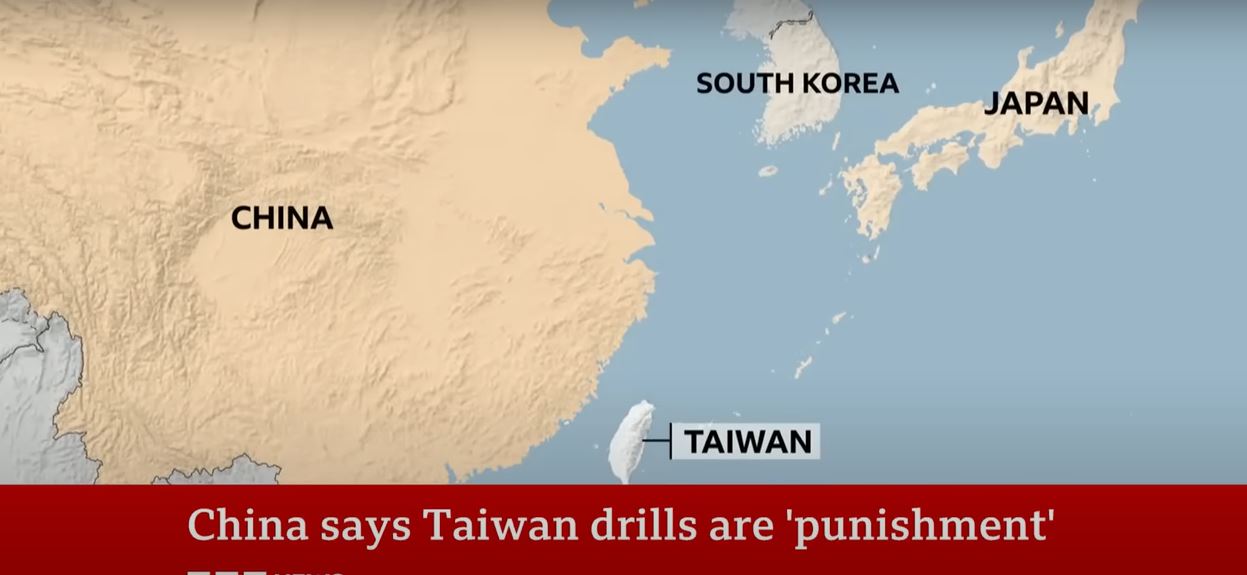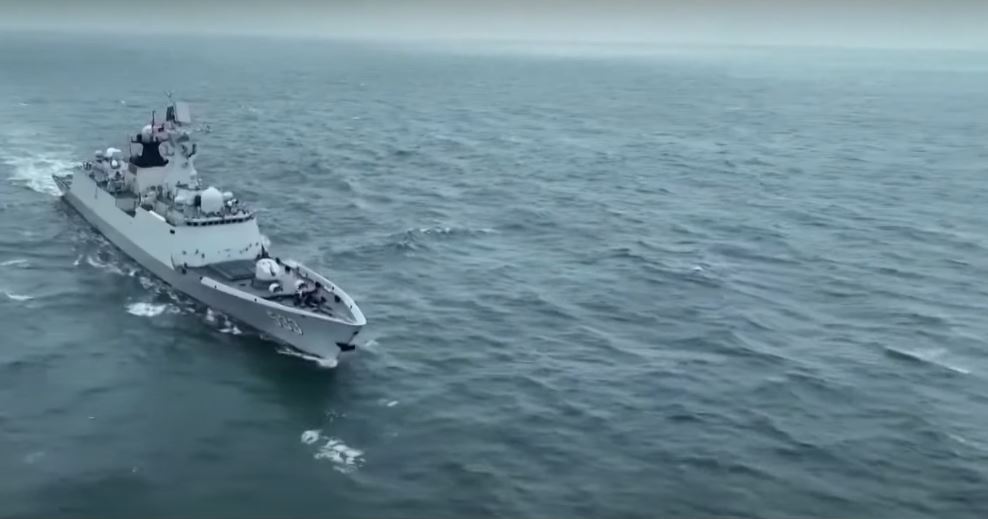
Taiwan, an island democracy with a new president taking office this week, saw Chinese military drills around it on Thursday, prompting Taiwan to scramble jets and place missile, naval, and ground troops on alert.
The military of China said that the two-day drills around Taiwan were a form of retaliation against separatist groups vying for independence.
Beijing asserts that the island is a part of its national territory, and the People’s Liberation Army frequently sends navy ships and fighter planes into the Taiwan Strait and other nearby areas in an effort to weaken Taiwan’s defenses and scare its people, who adamantly support their de facto independence.
The island’s Defense Ministry stated that China’s unreasonable aggression has put regional peace and stability in jeopardy.
Taiwan “won’t shy away from a conflict,” it stated, but it won’t actively seek out any.
According to the ministry’s statement, this justification for holding military drills not only undermines peace and stability across the Taiwan Strait, but also reveals the hegemonic nature of the situation at hand.
Taiwan’s president, Lai Ching-te, promised to “neither yield nor provoke” the leadership of the Communist Party on the mainland in his inauguration speech on Monday.
He also demanded that Beijing cease its military intimidation in his inaugural speech on Monday.

According to Lai, he wants to have talks with Beijing while preserving Taiwan’s current standing and averting confrontations that can entice Taiwan’s biggest supporter, the United States, as well as other regional allies like Japan and Australia.
The Eastern Theater Command of the People’s Liberation Army stated on its official Weibo account that the purpose of the land, navy, and air exercises near Taiwan is to evaluate the PLA units’ naval and aviation capabilities as well as their ability to launch coordinated strikes that will take control of the battlefield.
The statement added, “This is also a serious warning to external forces for interference and provocation and a powerful punishment for the separatist forces seeking independence.”
A map of the planned exercise area, which includes Matsu and Kinmen, two outlying islands that are closer to the Chinese mainland than Taiwan, as well as five different locations around the main island of Taiwan, was also made public by the PLA.
Though the pro-China Nationalist Party gained a one-seat majority in the parliament, Taiwan’s government has now been led by the Democratic Progressive Party for almost ten years, despite China characterizing the drills as retaliation for Taiwan’s election outcome.
Marine Corps Lt. Gen. Stephen Sklenka, the US Indo-Pacific Command’s deputy commander, made a request to Asia-Pacific countries to denounce the Chinese military drills while he was in Australia.
In regard to Monday’s presidential inauguration, Sklenka told the National Press Club of Australia in Canberra that it is not surprising that the Chinese feel obligated to make a statement anytime there is an event that highlights Taiwan in the international arena.
It doesn’t follow that we shouldn’t publicly denounce such behavior just because we anticipate it.
It must originate not only from ourselves but, I think, from neighboring countries as well.
It’s one thing when the US condemns China, but when countries in this region do the same, I think the message gets far more traction,” Sklenka continued.
During a visit to the US, Japan’s top ambassador expressed opinions, saying that Taiwan and Japan share similar ideals and values such as democracy, freedom, the rule of law, and basic rights.
Speaking to reporters in Washington after meeting with Secretary of State Antony Blinken, Foreign Minister Yoko Kamikawa described Taiwan as her most valued friend and our most significant economic partner.
According to her, the two ministers talked about Taiwan and how crucial it is that the Taiwan Strait, one of the most significant maritime lanes in the world, stay stable.